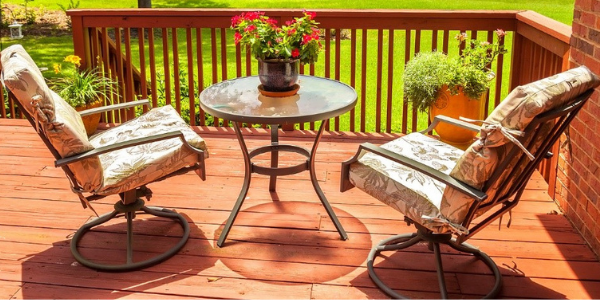
Collapses and failures of decks, porches and balconies account for thousands of injuries each year, according to the Consumer Product Safety Commission.
Jay Riat, Fairfax County’s building official, answers a few questions to help you ensure your decks are safe. “The health, safety and welfare of you and your family should never be compromised,” said Riat.
What is the average lifespan of a deck?
Riat: The answer to this question varies. It depends on the materials used to build the deck; the quality of the work done by the builder, how the deck has been used and how often, how well the deck was maintained, and more. But, in general, if the deck was built and inspected to code and maintained properly, it should last 20 years or more.
How can I ensure my deck is safe?
Riat: You should evaluate your deck annually and maintain it as recommended by your builder. Additionally, we recommend you regularly have it inspected by a licensed contractor. The older your deck, the more often you should have it inspected.
Is there anything I can do to extend the life of my deck and identify any potential issues before they become dangerous?
Riat: Make sure to follow manufacturing and building recommendations for cleaning and maintenance. Minimize the stress your deck experiences. For example, shovel the snow off your deck after a heavy snow fall to minimize the burden and wear to your deck. Review critical safety elements of your deck. For example, if you see any issues with the connection points or wood quality, consider staying off your deck until a professional inspects it, repairs it or replaces it.
Additional Information
Riat suggests answering these questions and following these key tips for additional deck safety:
- Is the material of your wood deck still solid, no wood rot or splitting or insect damage, including the posts at the ground? If your deck is composite is there mold growth, breakage or delamination?
- Are all the places where your deck is attached to your home secure?
- Is there rust or corrosion on any of the fasteners used to connect your decks, rails, beams and joists together? (You are looking at the fasteners, bolts, brackets, etc.,)
- Are the guards, rails and stairs sturdy and well secured?
- Don’t add large, heavy items such as swimming pools or hot tubs on top of your deck; this is dangerous and could cause a collapse.
- Make sure all stairs are well lit for safe travel after the sun goes down. This can be as simple as adding inexpensive solar powered lights.
- If you are using grills, heaters and outdoor fire pits on decks, be careful and follow all rules regarding their use. In addition to structure failure or collapse, fire is also a deck hazard.
- Do not overcrowd the deck beyond its designed load bearing capacity.
Remember, before building a new or replacing an existing deck, building permits are required. Find more information about decks. You can also learn about finding a licensed contractor.



 SIGN UP FOR DAILY EMAIL HEADLINES
SIGN UP FOR DAILY EMAIL HEADLINES